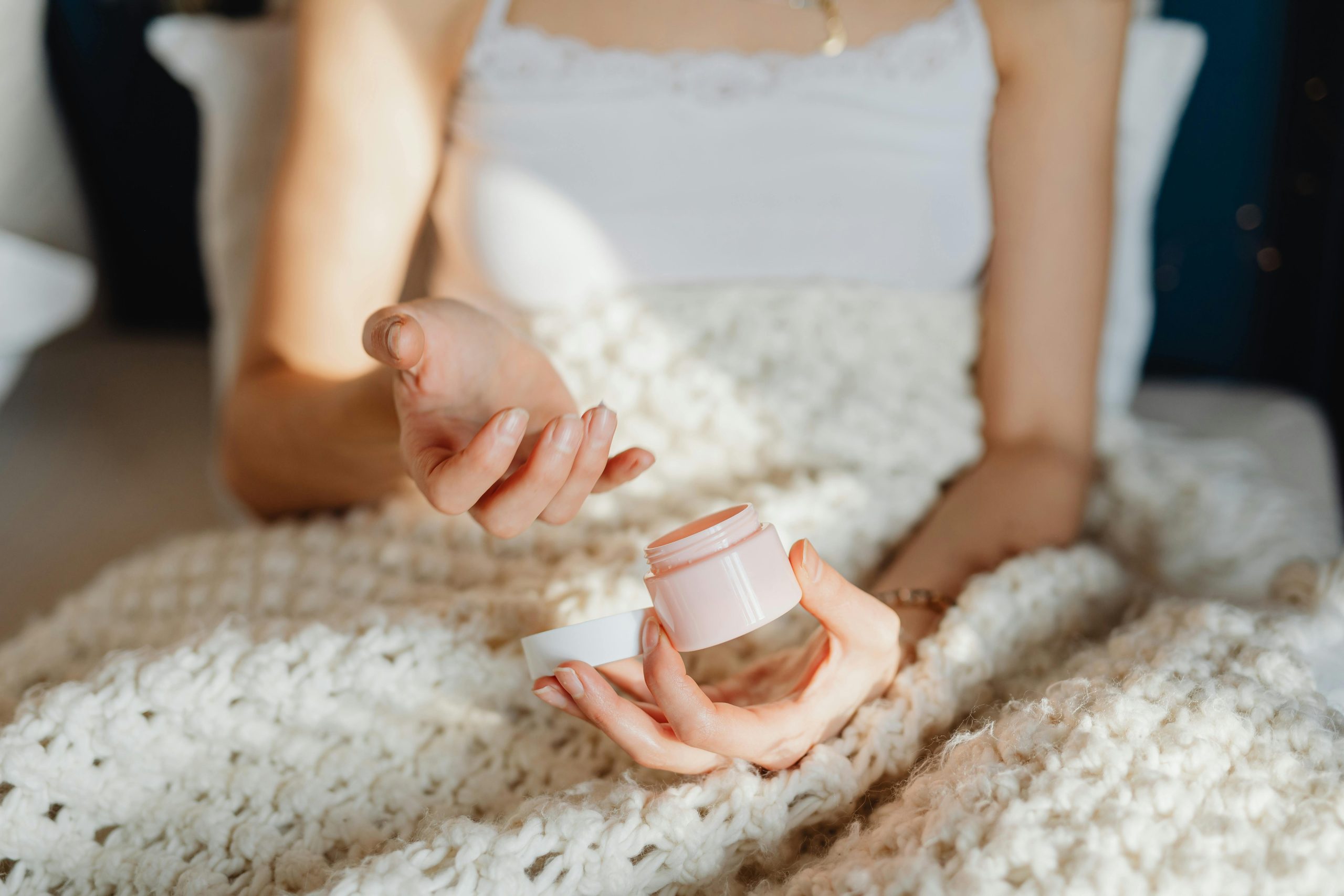Winter is here, and while it brings cozy vibes, it also comes with its own set of skincare challenges. Cold air, low humidity, and indoor heating can sap moisture from your skin, leaving it dry, flaky, and irritated. To keep your skin soft, glowing, and hydrated, here’s a guide to essential winter skincare tips. Follow these steps to maintain a healthy complexion even in the harshest cold!
- Switch to a Hydrating Cleanser
One of the best things you can do for your skin in winter is switch to a hydrating, gentle cleanser. Regular cleansers can be too drying, especially in colder months. Look for cleansers that include moisturizing ingredients and avoid anything too harsh.
- Top Ingredients: Hyaluronic acid, glycerin, and aloe vera.
- Tip: Cleanse only once a day (at night) to prevent over-stripping.
These ingredients help to retain moisture, leaving your skin fresh and soft without the uncomfortable “tight” feeling.
- Choose a Rich Moisturizer
Winter requires a heavier moisturizer than you might use in other seasons. As the air dries out, your skin loses moisture faster, making a thick, nourishing cream essential for maintaining a healthy skin barrier.
- Look for: Cream-based moisturizers with ceramides, squalane, and shea butter.
- Best Time to Apply: Right after cleansing, while your skin is slightly damp, to lock in the most moisture.
- Quick Tip: Apply a second layer to any extra-dry areas like your nose and cheeks to prevent flaking.
- Don’t Skip Sunscreen
Sunscreen is just as important in winter as it is in summer. Even on cloudy days, UV rays can penetrate the skin, accelerating aging and drying out your skin.
- SPF Level: Use SPF 30 or higher daily.
- Why It Matters: Sun exposure, even in winter, can worsen dryness and lead to premature wrinkles and dark spots.
Make sunscreen part of your winter skincare routine to ensure year-round protection.
- Hydrating Serums for an Extra Boost
Hydrating serums are an essential addition to any winter skincare routine. Serums with ingredients like hyaluronic acid or vitamin E penetrate deeply, providing intense moisture and helping your skin to look plump and hydrated.
- Best Ingredients: Hyaluronic acid (draws moisture), vitamin E (protects and heals), and peptides (promote elasticity).
- When to Use: Right after cleansing and before applying moisturizer.
A good serum can make a noticeable difference in the smoothness and overall hydration of your skin.
- Gentle Exfoliation for Smooth Skin
Exfoliating once a week helps to remove dead skin cells and improve the absorption of other products. However, be careful not to overdo it, as too much exfoliation can irritate dry winter skin.
- Use: Gentle exfoliators with lactic acid or enzymes.
- How Often: Once or twice a week is sufficient in winter.
By removing dead skin cells, you’ll help your skin absorb your hydrating products more effectively, leaving it soft and glowing.
- Lip Care Essentials
Lips often become chapped and dry in winter. Invest in a good lip balm with hydrating ingredients that form a protective layer on your lips.
- Best Ingredients: Shea butter, beeswax, and coconut oil.
- Tip: Avoid balms with alcohol, as they can further dry out your lips.
Apply lip balm several times a day to keep your lips soft and comfortable.
- Warm, Not Hot Showers
Hot showers feel great in winter but can strip essential oils from your skin. Opt for warm showers instead, and keep them short to avoid over-drying.
- Aftercare: Apply body lotion while your skin is still damp to lock in moisture.
- Best Products: Cream-based body lotions with ingredients like cocoa butter, coconut oil, and almond oil.
This small change can make a big difference in your skin’s softness and overall hydration.
- Humidify Your Environment
A humidifier can be a game-changer for winter skincare. Indoor heating systems dry out the air, which pulls moisture from your skin. A humidifier adds moisture back into the air, helping to keep your skin hydrated.
- Ideal Location: Bedroom or any room where you spend a lot of time.
- Why It’s Effective: Humidifiers help prevent dry, itchy skin and make it easier to maintain soft, hydrated skin.
- Hydrating Eye Cream
The skin around your eyes is thinner and more delicate, making it especially susceptible to dryness in winter. Using a hydrating eye cream can prevent fine lines and puffiness caused by cold air and dry indoor heat.
- Ingredients to Look For: Hyaluronic acid, caffeine (for puffiness), and peptides.
- When to Apply: Morning and night for best results.
A good eye cream can help maintain elasticity and reduce the appearance of fine lines, keeping you looking fresh all season long.
- Hydrating Face Masks
Treat yourself to a weekly hydrating mask to replenish your skin’s moisture levels. Hydrating masks are packed with ingredients that penetrate deeply to repair and moisturize.
- Best Ingredients: Avocado, honey, and green tea extract.
- How to Use: Apply once a week for 10-15 minutes, then rinse with lukewarm water.
A hydrating mask can instantly transform dry, lackluster skin, making it look plump and radiant.
Final Thoughts
Winter skincare doesn’t have to be complicated. By adding a few essential products to your routine and making small changes to protect your skin from the harsh weather, you can enjoy soft, glowing skin all winter long. Embrace these winter skincare essentials to keep your skin nourished, hydrated, and protected throughout the season.
